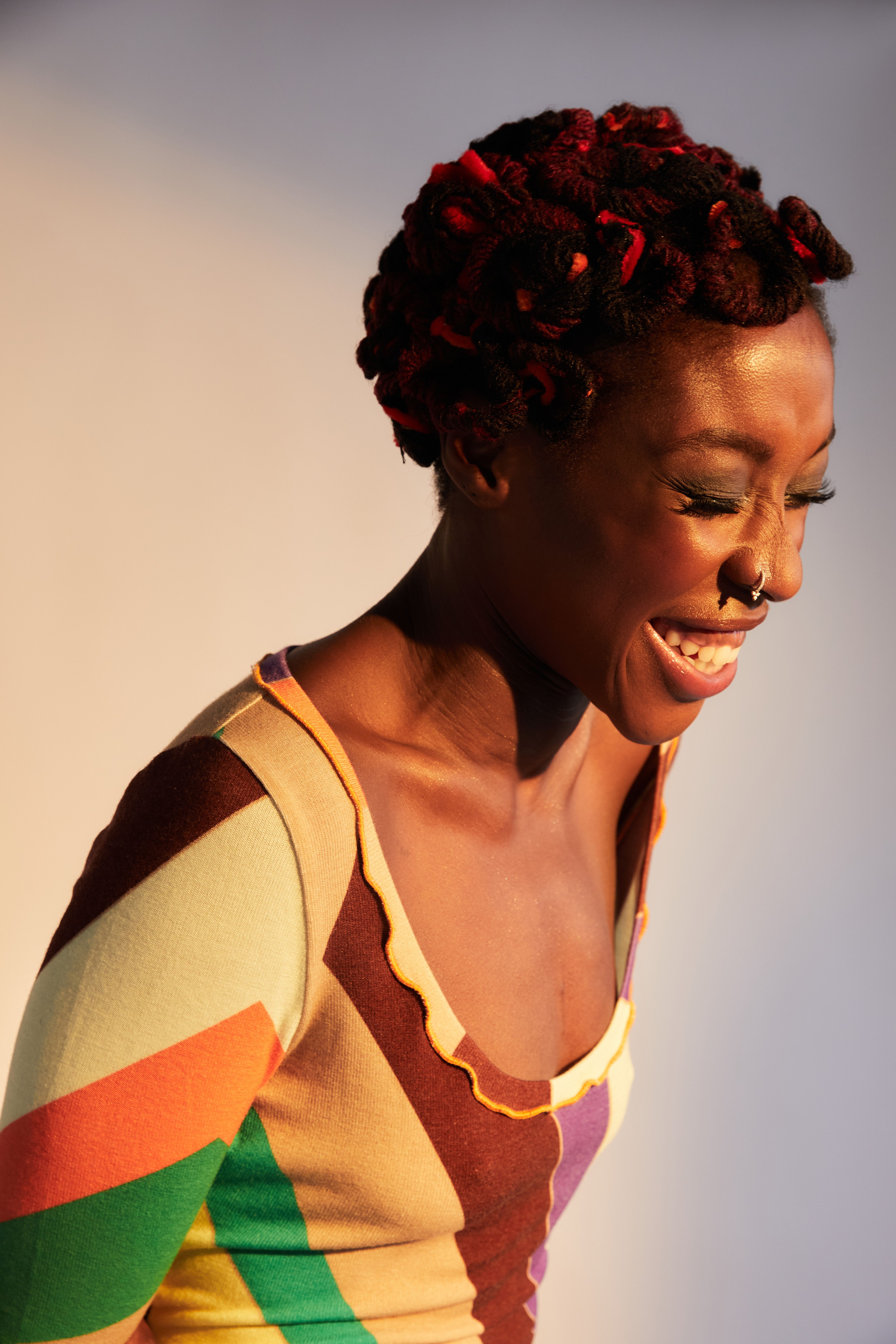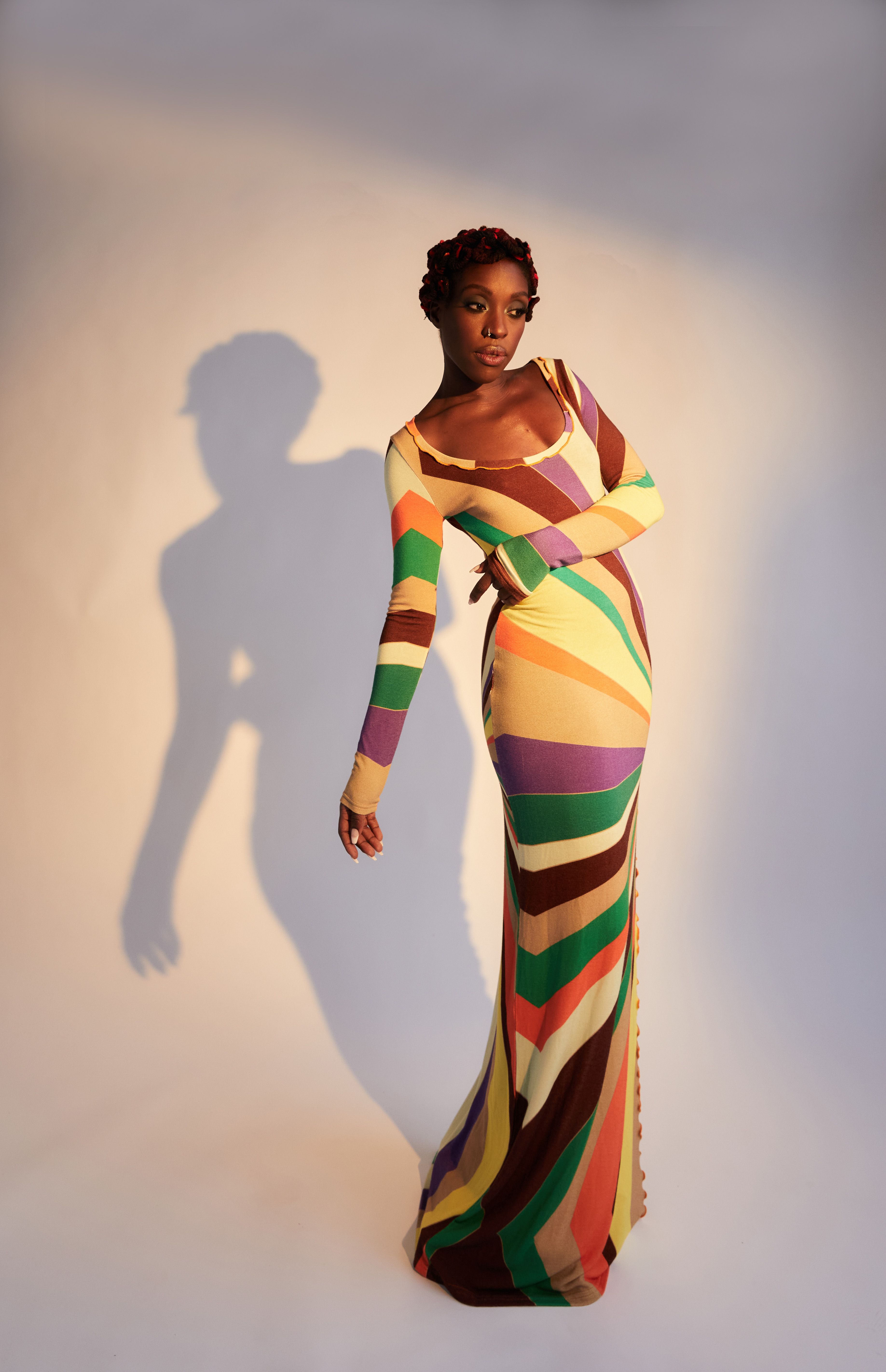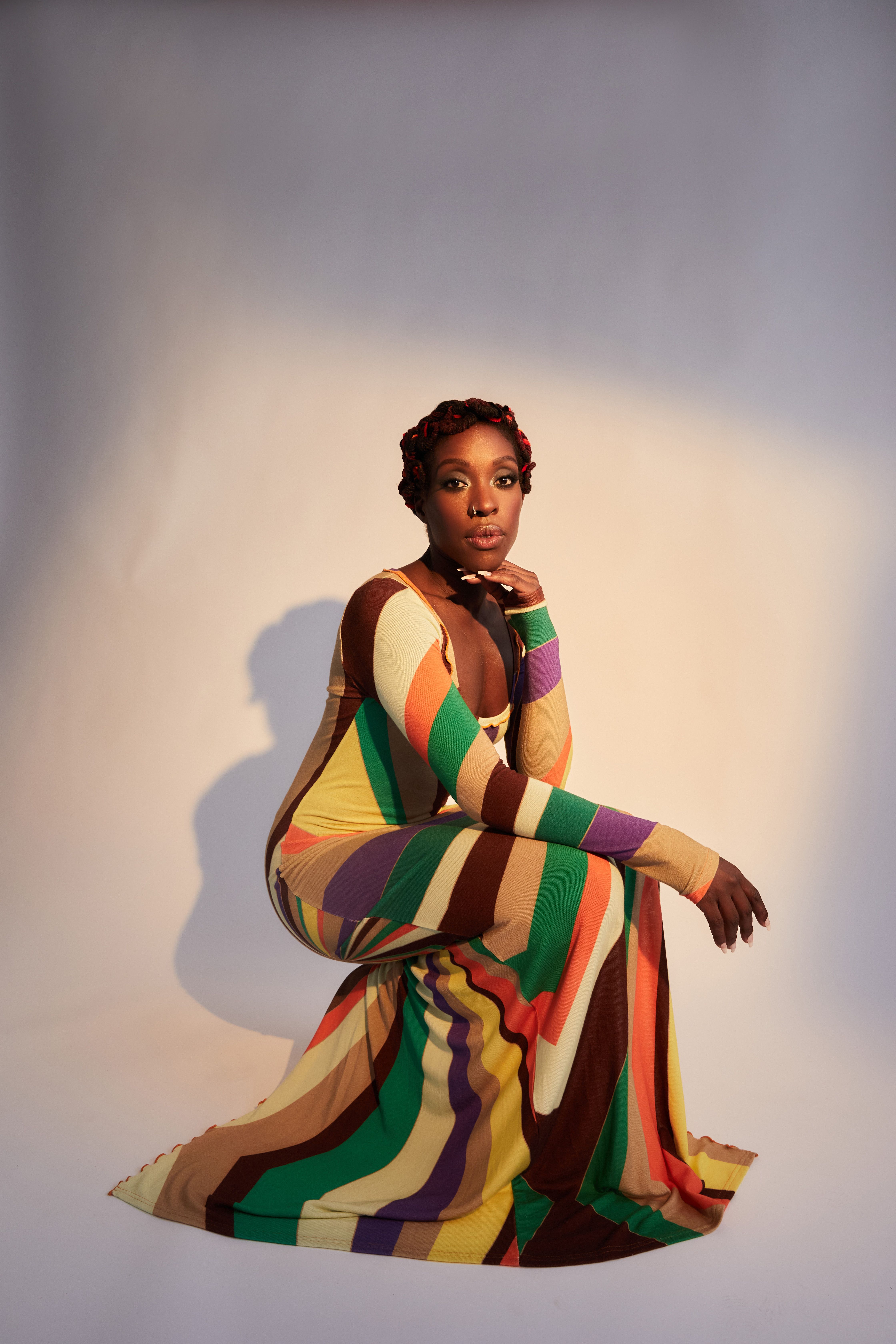
The east-London born Ronkẹ Adékoluẹjo is an English actress of Nigerian ancestry with a disarming talent for subtle nuance, which she has charismatically employed to critical acclaim both on stage and on-screen – most notably perhaps in the fairly recent and quite brilliant stage production Blues For An Alabama Sky, which deftly tackled issues of abortion, birth control, prohibition and homosexuality during the Great Depression, while drawing some uncomfortable parallels with the political push-and-pull of our own era. Her latest project Rain Dogs once again places her talents against the backdrop of a similarly tenuous political situation, namely the cost of living crisis, and while the show is essentially a comedy, it holds nothing back in portraying the challenges of poverty, and life lived upon the fringes of society. There is little doubt at this stage in her career that Adékoluẹjo has the kind of star quality that could witness her step into Hollywood, but she has little interest in the trappings of celebrity, viewing celebrity culture as essentially a distraction from the art of storytelling, which, as she explains in this interview, is something that she believes to be spiritually fundamental to our connectivity as a species. In this candid interview with Culture Collective, the actress also tells us why one of the most beautiful things about people is their ability to change, elucidates as to why desire for validation is a road to nowhere, and laments the lack of gritty drama being made in the streaming era.
What draws you to storytelling, and why do you feel it is important?
I'd say what draws me to storytelling is that fact that it's been alive forever – like, from the beginning of time. It's literally how we have kept our stories alive, and how we have kept each other alive at times. And I feel that it's a real gift to be able be engaged in storytelling for my job – it’s such a privilege, because you are kind of keeping people alive, which, in a spiritually wonky way, is very sacred, magical and mystical. One of the parts I played recently was an actual person, who was alive in the 18th century, so you are kind of telling that story of their past, and even fictional characters that haven't really existed in this lifetime represent an idea that was born in someone. So, you feel these stories need to be told because they might help someone along their journey, or might be relatable to someone. I feel like in its purest sense, acting and storytelling is about being of service, and it's really strange that our industry has made it all quite glitzy and ‘look-at-me vibes' when really it should be about looking at each other, or looking at that other person, do you know what I mean?
I do know what you mean. I mean, to me a big budget piece like Glass Onion is just about a lot of rich people patting each other on the back, rather than about acting per se. It’s definitely a very long way from a Mike Leigh or Wim Wenders film …
Absolutely. I mean, even though I do enjoy a good Glass Onion, because we do need some of that lightness also, I do agree with you that our gritty dramas, or our more meaningful projects have maybe disappeared a little into the background. I mean, one thing about my current show Rain Dogs is that it shows how poverty in this country is very, very real, and explores how a lot of us, even though we have been hit by the cost of living crisis, have been able to carry on. There are so many people in this country that can't even eat right now, so when something like Rain Dogs comes along, which is a comedy, you need to look at the realities it is portraying, because if you don't laugh, you will cry. So, yes taking on those kinds of projects is a conscious thing for me. It’s an uphill struggle, though. I mean, there are certain shows out there that are hugely popular, like The Posh Boys, and, don't get me wrong, when you do get a look into the privileged life of an Eton boy it can be quite fascinating, but, really, who does that relate to?

There seems to be quite a strong social conscience at play in the roles you choose …
Absolutely. I mean, I'd say my key drive, once I get past my ego, because, to be honest, there's part of me that is still definitely trying to prove to people that I can do this very well. But once I get past that, it's actually about our audiences and what people are going to feel experiencing whatever it is we create, or whatever it is we share. And in terms of my consciousness around the projects that I pick, if I do have the opportunity to choose something that is more political, or something that might cause a question or spark a conversation, I'd rather choose that project above anything commercial. (Laughs) But that's not me saying that if Marvel calls me, I'm not going to go! I mean, every kind of role in film and theatre can fulfil parts of you in different ways.
What has been the most fulfilling moment of your career so far?
When we did Blues From Alabama Sky, we did some quite relaxed performances, where the house lights were up a little bit and you could actually see your audience, and they could see you. Now, a lot of my cast-mates were like, oh my God, I hate it! I hate it so much. But I really, really loved it. I loved it because I was, like, in this moment we are creating an active agreement. When the lights are down you can't see each other, so you forget about that agreement, but in this moment, when you are looking at me dressed in this random costume pretending I'm 80 in 1934 in Harlem, we've made an agreement to transport each other. And I just found that experience so peaceful. I found it enlightening, actually. I was elated. And that's the kind of thing I am looking for. I think that because the acting industry has become quite glamorous, there is often a desire not just to be good, but also to be validated or be lauded, or celebrated, right? And I know that if I allow that kind of ego-driven thing to override what I'm trying to do, which is tell stories and create characters, it won't work, and I won't be able to feel comfortable. I won't be able to commit.

What would you say was core to the way in which you approach taking on different characters, and defining their essence?
I'd say my ability to understand that nobody's perfect. I guess people are always in flux. Humans are constantly changing. And I think that's one of the most beautiful things about human nature, the fact that the person who we were yesterday is not the person that we have to be the next day. I feel I try to lend that belief that I have of myself into my work – that sense that, you know, these characters are real people, and because they're real, all of their choices are valid, good and bad. I think our role as actors in society is to offer reflection on the things we've done, or the things we might currently be doing as humans. And I think that’s really what our role should be. I don't think that we should be icons, and I mean no disrespect to anyone that is a celebrity from acting, but the celebrity part, I mean, really? We need to celebrate our surgeons. We need to celebrate our scientists. Yeah! Those are the people we really need to be liking on Instagram. I want to be following some brain surgeons!
Rain Dogs is streaming now on BBC iPlayer
Portraiture by Klara Waldberg